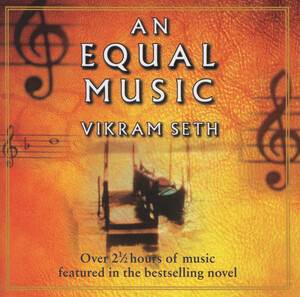Nella sua versione americana, al romanzo Una musica costante di Vikram Seth viene allegato un doppio CD con la registrazione dei brani più significativi tra quelli citati nel testo. Tra questi particolare importanza assume il Quintetto op. 104 di Beethoven registrato per la prima volta su CD in questa occasione.
All'interno del CD è contenuta la seguente "Note from the author":
Why append a CD - or rather, two CDs - to a novel about music? Is it not rather like attaching a whale to a copy of Moby Dick? Is the purpose to provide necessary illustration for te action in the novel? Or background music for the act of reading? Or a substitute for the text itself, which can only attempt to describe what cannot truly be described? For me the aim is none of the above, but rather, to give pleasure. Some of the works that play a role in An equal music are well known, others less so. Altogether they are expensive to buy (as many readers have told me), and in one case virtually impossible. When Decca suggested compiling or, if necessary, recording them, and making them available at a reasonable price, I was delighted. Most of the selections here require no explanation. They are all wonderful recordings, many of them classics in their own right, featuring, among others, Mstislav Rostropovich, Andras Schiff, Maria Joao Pires and Iona Brown. With the Largo from Vivaldi's "Manchester Sonata" No.1, a fresh recording for violin and piano was made because the existing recordings, naturally enough, use the harpsichord. It gives me particular reason to introduce one mpiece of music to listeners. Several readers, including some musicians, have written to me after reading An Equal Music, asking whether Beethoven's String Quintet in C minor, op. 104 really exists - as if I would have had the gall to invent not merely a fictive work but an opus number as well! It is an obscure work, but it does indeed exist, and now, thanks to this new recording, it is possible to hear it. Among the players both of this piece and of others is the dedicatee of the novel, the violonist Philippe Honoré. It was his idea that the protagonist of my work be a musician. It is fitting that he should now help bring to my ears - and yours - what several years ago, in the course of a casual conversation, he brought to my as yet fallow imagination.
Vikram Seth
London, November 1999

No comments:
Post a Comment